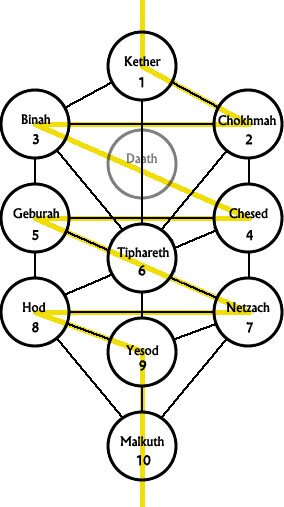 Kabbalah (Hebrew: קַבָּלָה; standard vocalization: Qabbala; Tiberian vocalization: Qabbālāh; literally a "receiving" in the sense of a "received tradition") is an esoteric form of Jewish mysticism, which attempts to reveal hidden mystical insights in the Tanakh (Hebrew Bible). It offers mystical insight into divine nature.
Kabbalah (Hebrew: קַבָּלָה; standard vocalization: Qabbala; Tiberian vocalization: Qabbālāh; literally a "receiving" in the sense of a "received tradition") is an esoteric form of Jewish mysticism, which attempts to reveal hidden mystical insights in the Tanakh (Hebrew Bible). It offers mystical insight into divine nature. The term "Kabbalah" was originally used in Talmudic texts (see Talmud), among the Geonim (early medieval rabbis) and by Rishonim (later medieval rabbis) as a reference to the full body of the oral tradition of Jewish teaching, which was publicly available.
Even the works of Prophets were referred to as Kabbalah, before they were cannonized (see biblical canon) as part of the written tradition. In this sense Kabbalah was used in referring to all of Judaism's oral law. Over time, the oral law was recorded, but the esoteric teachings remained an oral tradition. Thus, this term became connected with doctrines of esoteric knowledge concerning God, God's creation of the universe and the laws of nature, reasons for the commandments in the Torah and the ways by which God administers the existence of the universe. Now, even the esoteric teachings of the Torah are recorded, but it is still known as Kabbalah.
According to Jewish tradition Kabbalah dates from Adam, although modern liberal rabbis date its origins in the 13th century. This knowledge has come down as a revelation to elect saints from a remote past, and for the most part, was preserved only by a privileged few. The proper protocol for teaching this wisdom, as well as many of its concepts, are recorded in the Talmud (second chapter of tractate Haggiga). It is considered part of the Jewish oral law by the majority of religious Jews in modern times, although this is not agreed upon by many modern liberal rabbis and a minority of Orthodox rabbis.
More...


No comments:
Post a Comment